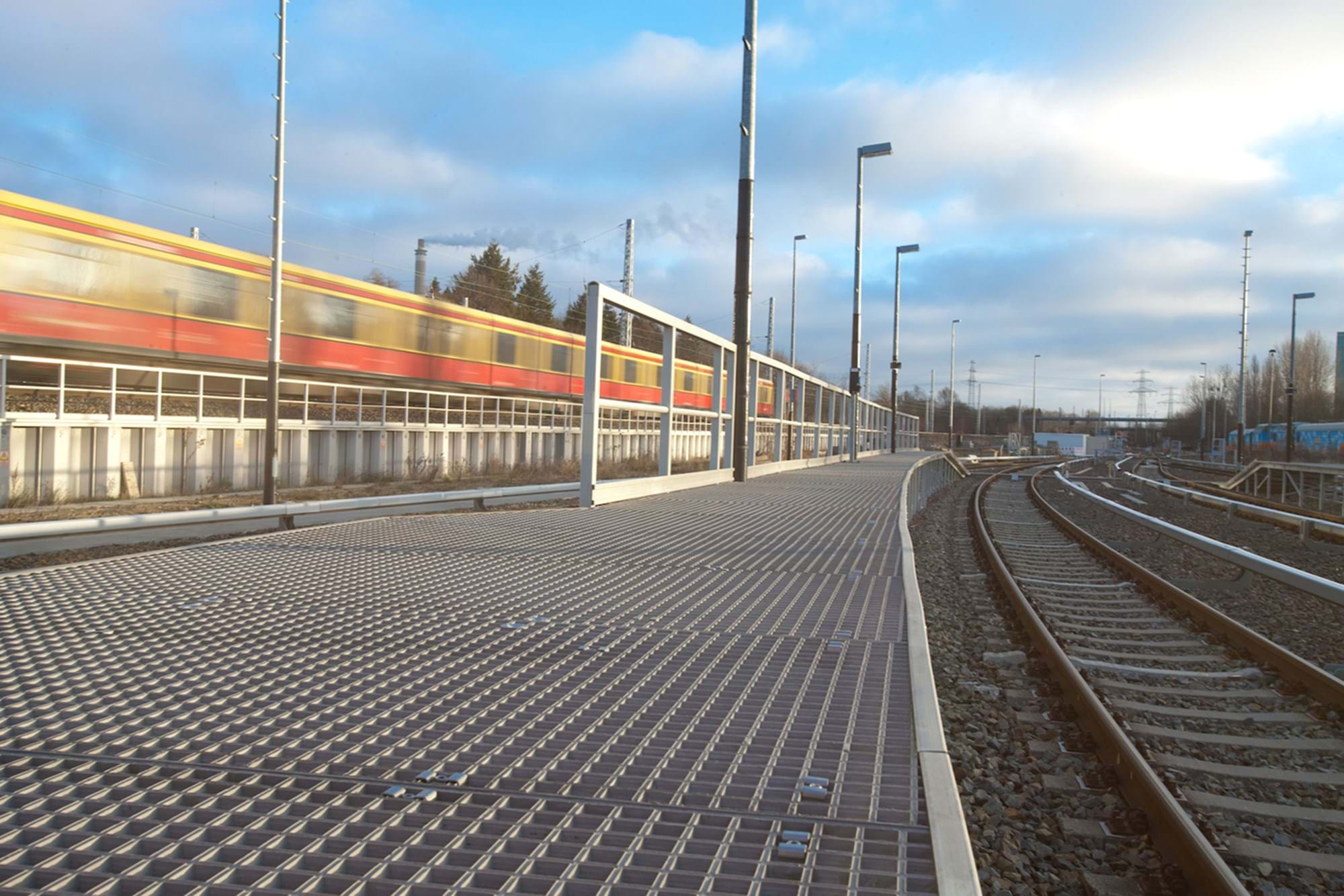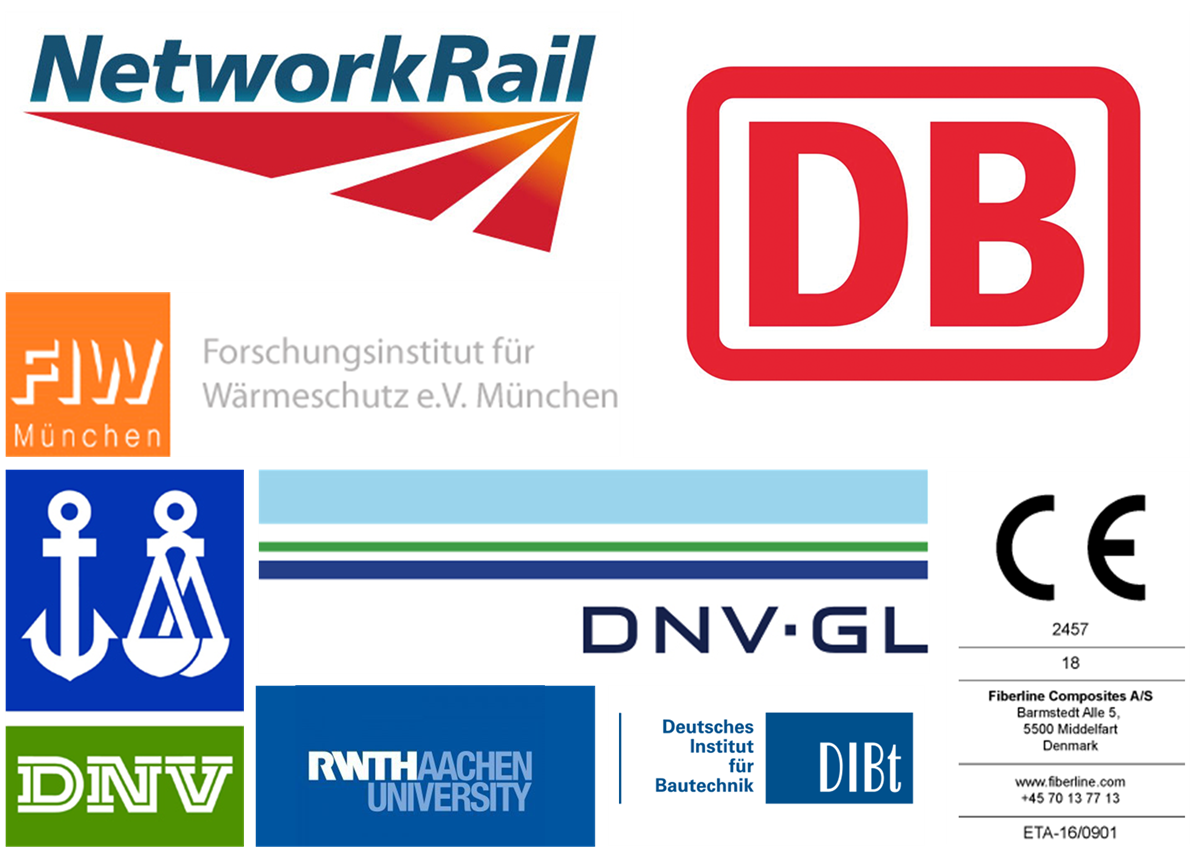

Fiberline A/S is certified according to a number of highly sought-after international certifications, among others within construction, offshore and railway sectors. This is your guarantee of consistently high quality every time you buy from us and use our products. Do you need more information about our certifications or our process, please contact us.
Fiberline uses its ISO certification as an active tool in the company’s strategic management. The organisation must collaborate to create value for the customer and the company. This we achieve through efficient working procedures and administrative simplification which is a result of our acquaintance with the requirements of the customer.
Certificate Fiberline Building Profiles
Fiberline is the first and one of the only producers in the world who holds a CE certificate for our structural GRP profiles.
Certificate
The building approval, Bauartgenehmigung/aBG, is issued by the German technical authority Deutsches Institut für Bautechnik (DIBt) and is an approval of the use of our products in the German construction sector. If you need the entire document, please contact us.
Certificate
Our construction profiles, planks and gratings fulfil all the requirements of the latest Deutsche Bahn standard. The approval also applies to preassembled constructions.
Certificate
Our GFRP gratings hold the the German EBA-certificate.
The gratings from Fiberline are certified by “Det Norske Veritas” for the use on ships and offshore platforms.
Structural GRP profiles from Fiberline can be used in all building activities started by Network Rail.
Fiberline structural profiles made of pultruded glass fibre reinforced polymers are certified according to EN 13706-3:2002 by Prof. Dr.-lng. G. Sedlacek, Institute of Steel Construction, RWTH Aachen.
Read more
Research Centre for heat protection - Forschungsinstituts für Wärmeschutz e.V. Munich (FIW Munich).
Investigation of the thermal conductivity for GRP plates. GRP is for instance used for thermal insulation in window frames, definition of the nominal thermal conductivity according to ISO 10456.

Our products are CE certified according to the EN13706 1-3 standard. This certification is your guarantee of consistently high quality every time you buy from us and use our products. Read more
Fiberglass enables lightweight and robust constructions, making installation faster. Although the material is comparable to steel, the specific weight of Fiberglass is only a quarter of steel. Read more
Fiberglass is an exceptionally strong material, rivaling steel, aluminum, and wood. Composite profiles offer similar weight to aluminum, while being just 20% the weight of concrete and 40% of steel, making them highly efficient. Read more
Composite materials are generally very durable, with only a few exceptions. They resist a variety of aggressive liquids and environments, resulting in long lifespan and minimal need for maintenance. Read more
Fiberglass is UV-resistant and can withstand temperatures between -40 and +80 degrees Celsius without deterioration of its properties. Additionally, it tolerates seawater and other atmospheric influences. Read more
Fiberglass profiles are electrically insulating. They are suitable for use in connection with all electrical constructions, such as along railway tracks, power plant installations, etc., as they are suitable for both low and medium voltage. Read more
The processing of fiberglass profiles is significantly easier than for metals such as steel, and just as efficient as for wood. This makes it easy to handle solutions with our profiles on site. Read more
Fiberline's fiberglass profiles have a significantly higher thermal insulating capacity compared to steel and aluminum. Read more
Fiberline's products are manufactured energy-efficiently through pultrusion. The low weight relative to strength and long lifespan make them a cost- and energy-efficient alternative. Read more